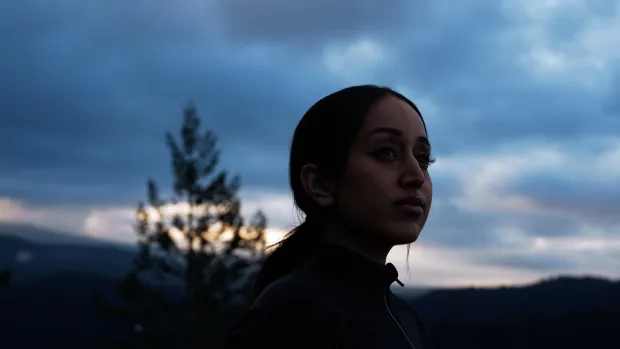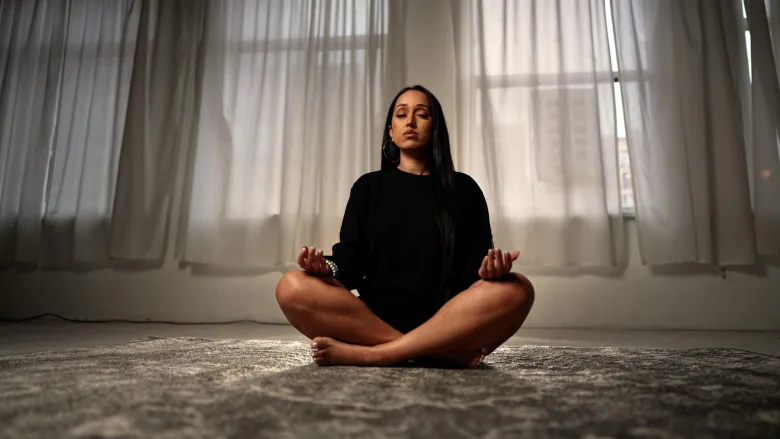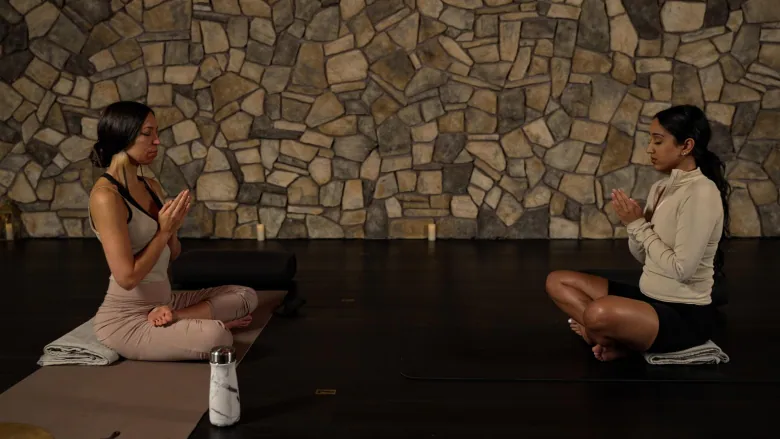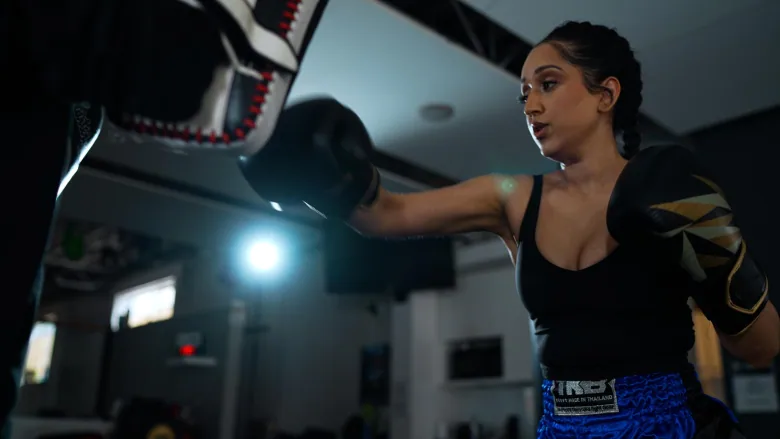
Absolutely Canadian is a national one-hour series showcasing documentaries and performance programs that tell unique stories from communities across Canada. All programs are produced locally.
When she shows up to a yoga class, Summan Kandola wonders whether she really belongs.
“Most of the time if I’m there, I’m just thinking … am I skinny enough to be here? Am I blonde enough?” said the Vancouver-based filmmaker.
That feeling of discomfort and disenchantment when it comes to wellness practices inspired Kandola to look at how capitalism and colonialism have crept into wellness practices in Identity of Wellness, a new documentary for Absolutely Canadian on CBC Gem.
She spoke with athletes, fitness instructors and coaches about the meaning of wellness, and the barriers people of colour face in wellness spaces and practices in North America, such as yoga and meditation, which tend to be dominated by white people.
Marketing wellness
Kandola had been practising yoga for more than a decade before she learned about its spiritual and emotional elements.
It was through a friend, who was working to become a yoga instructor, that Kandola learned how yoga is for more than just physical health.
“Why have I gone to yoga for like 13, 15 years and I never knew this philosophy of yoga?” she told North by Northwest host Sheryl MacKay.

Malina Dawn, a Vancouver-based yoga instructor, says capitalism tends to find a way to sell something. When it comes to wellness, the easiest part to sell, she says, is physical fitness — not its spiritual or emotional aspects.
Kandola says marketing is where wellness spaces become uncomfortable. It highlights body image and race, she adds, and focusing on those impacts the quality of the wellness you receive.
“You’re just thinking about how do I look? You’re looking at everybody else and like, am I good enough to be here?” Kandola said.
Watch Identity of Wellness:
White wellness
Yoga instructor Jessica Grewal says yoga is commonly seen as a method for weight loss — but historically, it means so much more.
Its origins can be traced back thousands of years to northern India, as a mental, spiritual and physical practice. Its history has been difficult to nail down as the hot, humid climate in India has led to the deterioration of ancient texts. Grewal says those aspects were never explained in the yoga classes she attended, either.
“White wellness is wellness created by white people for white people in a westernized context with only white people in mind,” she says in the film, which Kandola produced, directed and hosted.
Fellow yoga instructor Irene Lo of Vancouver says there is a power imbalance in wellness spaces and practices.
“There really can be no healing when this is a white space dominated by white people and colonial thinking,” she said.
‘Not looking for everyone to agree with me’
In creating the film and speaking with people about their experiences, Kandola says she gained the confidence to have tough conversations about wellness, race and belonging, and a better understanding of the kind of wellness she needs on a daily basis.

“I feel like having that self-awareness and actually honouring that self-awareness allows you to live a much more fruitful version of yourself,” she said, adding that she’s excited about the further dialogue that will happen as a result of the film.
“I’m not looking for everyone to agree with me,” Kandola said.
“I’m looking for everyone to just think about what do these things mean to them. How does this impact them? How does this show up in your life? I think that’s where the best conversations come from, where you can have that healthy conversation and debate of the mixing of ideas.”
